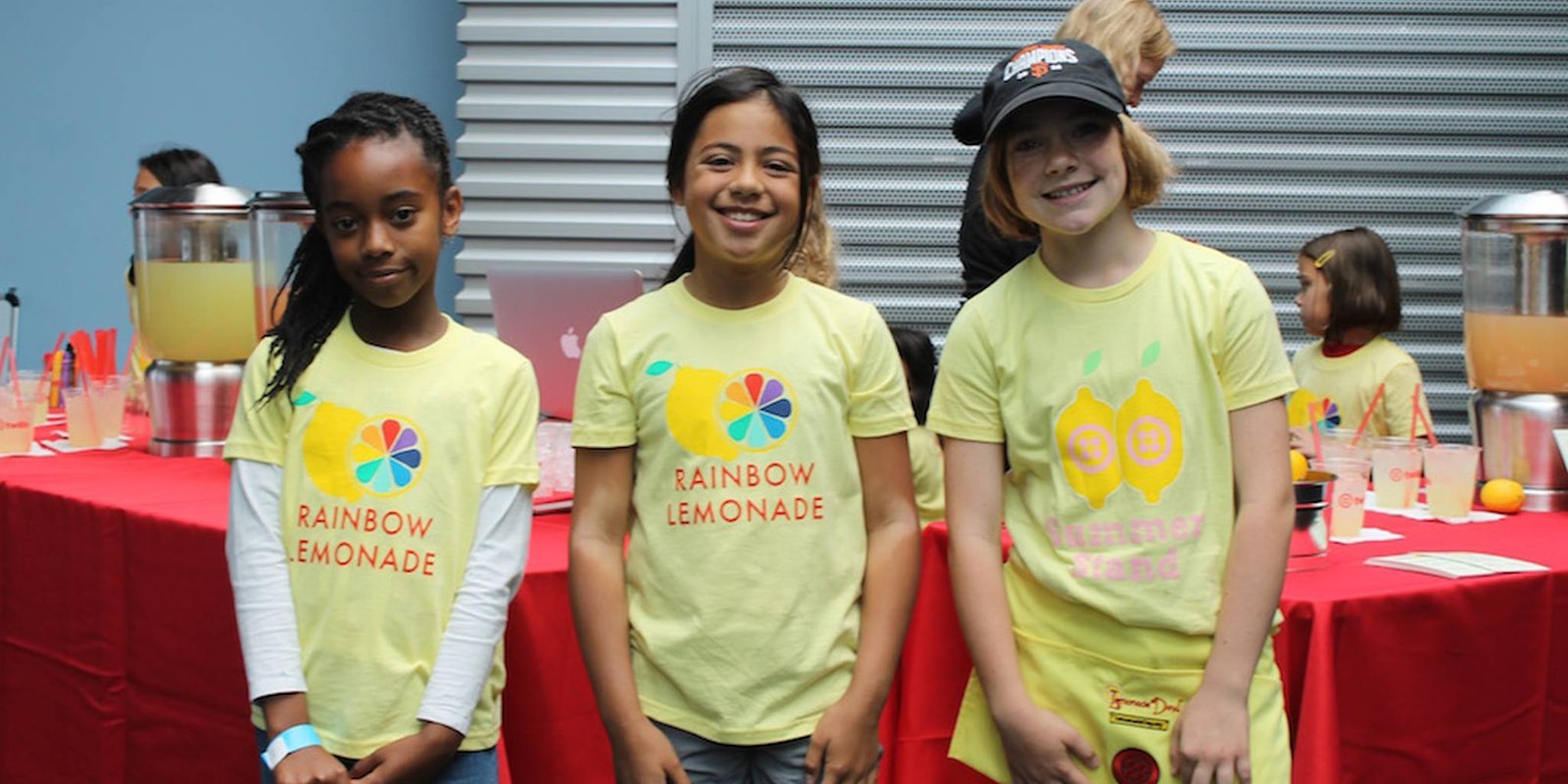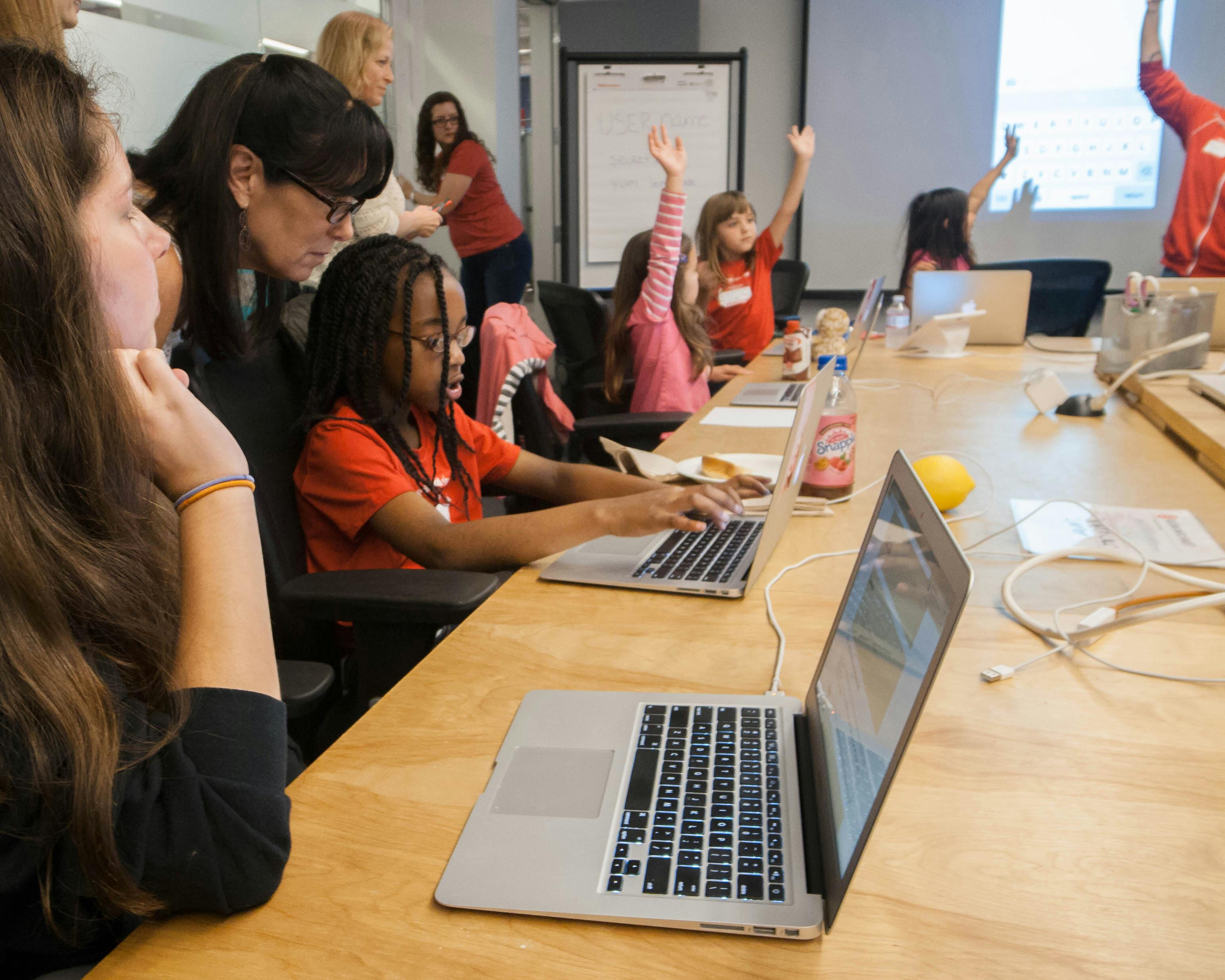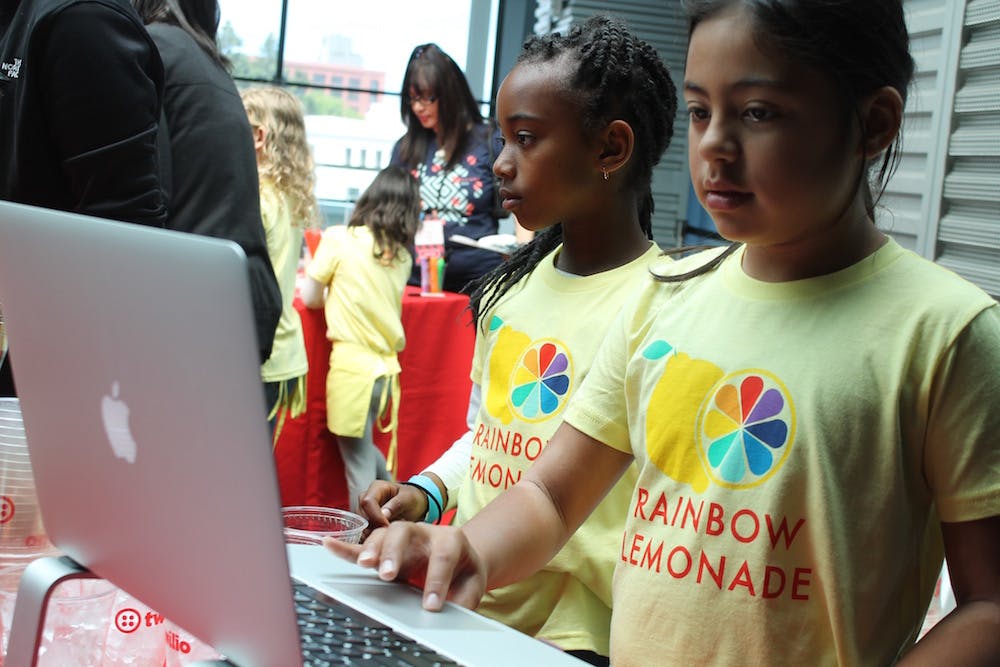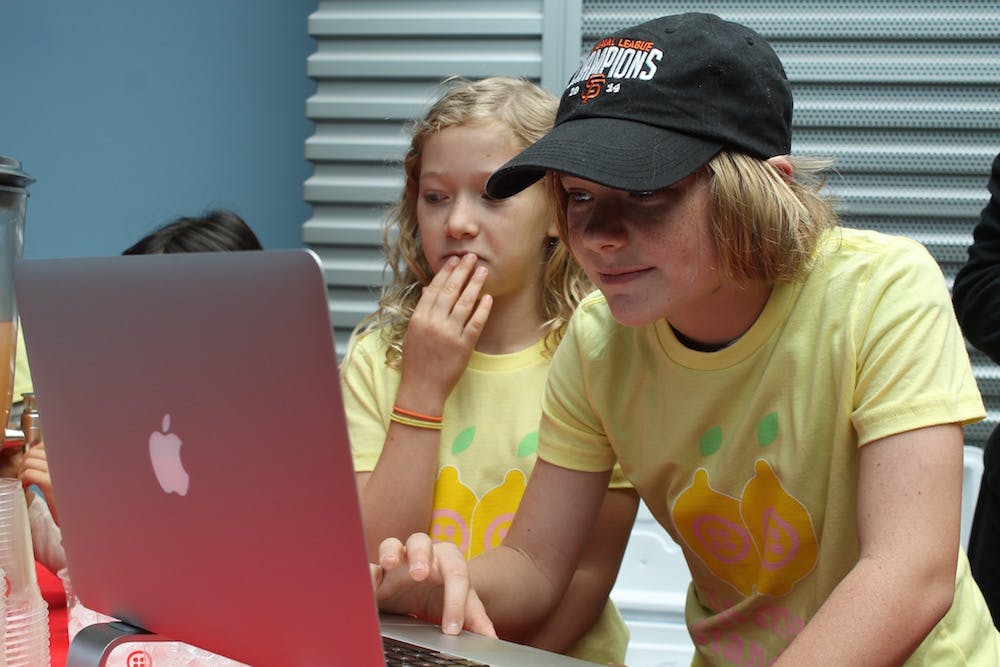You don’t find many children at tech conferences in Silicon Valley. But at Twilio’s annual developer conference, kid entrepreneurs are taking center stage, fueling attendees with extra-sugary lemonade. The group of children launched a business as part of an entrepreneur program aimed at elementary-school kids to learn business skills.
Twilio, a platform for implementing communications tools into apps and services, worked with students to create a business for Lemonade Day, which encourages kids to become entrepreneurs through the old-fashioned tradition of selling lemonade.
But the kids bucked tradition on Tuesday, debuting an app for attendees to text their lemonade orders and pick them up at the conference. The group of 15—all children of Twilio employees—made a business model, SMS-based application, and backend to track orders made at the conference.
The students went to Twilio headquarters in San Francisco to create the app, which debuted at the conference. The app is built with Python on the Flask framework and uses Firebase to store lemonade orders, Matt Nowack, senior technical lead of the API team at Twilio, explained.
Attendees can text their orders to the students, selecting “1, 2, 3, or 4” for their favorite flavor. The students receive the orders on laptops set up at the lemonade stand and prepare the drinks for visitors. In the backend, the students can see real-time orders and a breakdown of total sales.
I spoke with Emma Bernstein, Olivia “Spark” Brazier, and Zakiya “Zee” Lesley about their applications, and the girls were visibly excited describing their new skills. As children of Twilio employees, some of them have played around with programming tools, but it was the first time they had done something at this level.
After the SMS-based program, they already have ideas for future apps. Eleven-year-old Spark wants to make a text-based app for friends to work together to tell stories and to create a role-playing game. Zee, who is 9, wants to make an app to recognize low-income communities and provide a way for people to donate money or other services to people in need. Fellow 9-year-old Emma plans to build a service that will text you information about an animal when you text it a name.
Lemonade Day is a nationwide effort in 60 cities to provide resources and education that isn’t offered in traditional classrooms. The organization encourages youngsters to learn business skills, financial literacy, leadership, and self-esteem. More than one million children have participated and created their own lemonade businesses since 2007.
The push to teach kids to code is growing with nonprofit and classroom efforts to get kids thinking about how the tools and apps they use work and to figure out how to build their own. For instance, Code.org uses pop-culture references like Frozen and Minecraft to teach kids the basics of coding.
As digital natives, it makes sense to pair coding with programs that develop the new generation of entrepreneurs. As Lemonade Day’s President Emily Keeton said, kids are basically “born with an iPhone in their hands,” and learning tech and business concepts simultaneously is a natural progression for the organization.
“I think that these two things are related, because even if you learn to code and program, you still need to learn about a business model and your product and competition and customer service,” she said in an interview. “Leveraging technology will also help us track impact more with the kids to really see what they’re doing.”
For the students, taking a day off from school and working with parents to build apps demonstrate the opportunities that are possible with code. While some are now interested in programming as a future job, not all are convinced that coding is in their future careers.
“Programming is a good hobby,” Spark said. “But I’d rather be an author when I grow up.”





